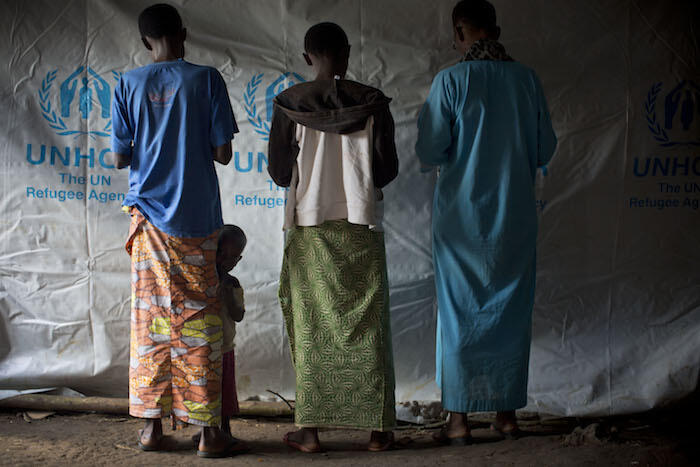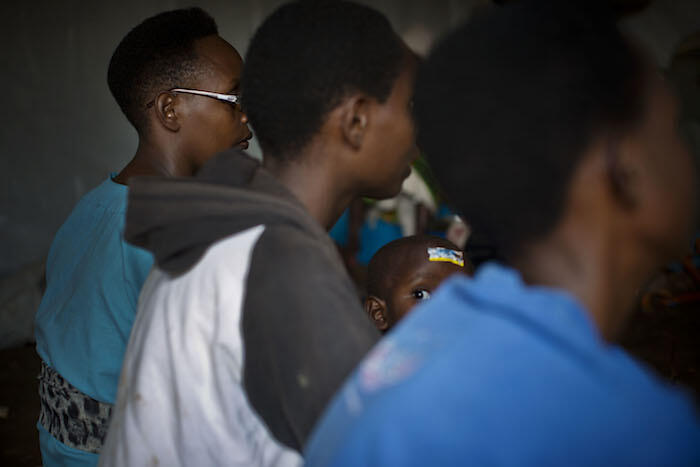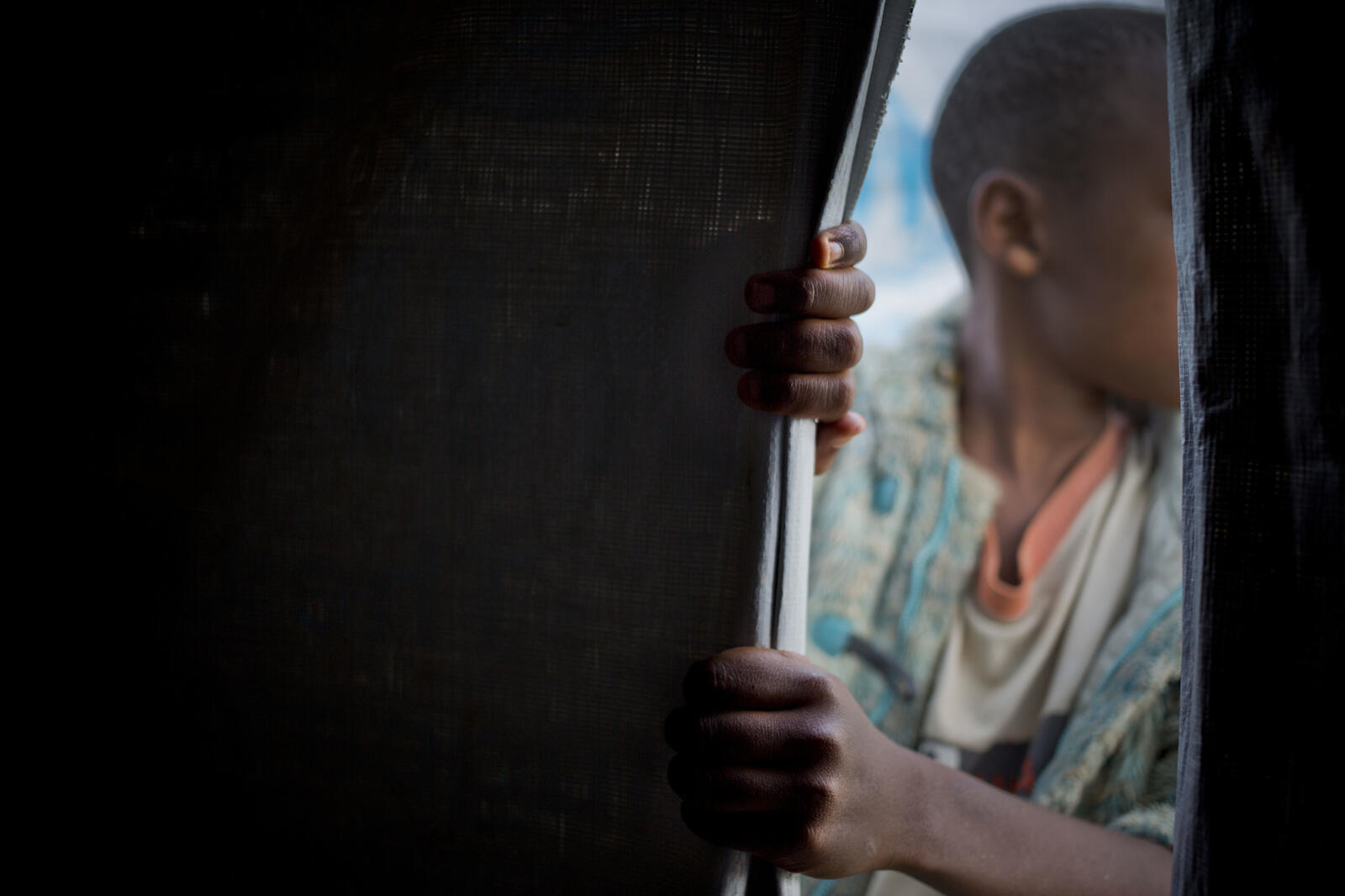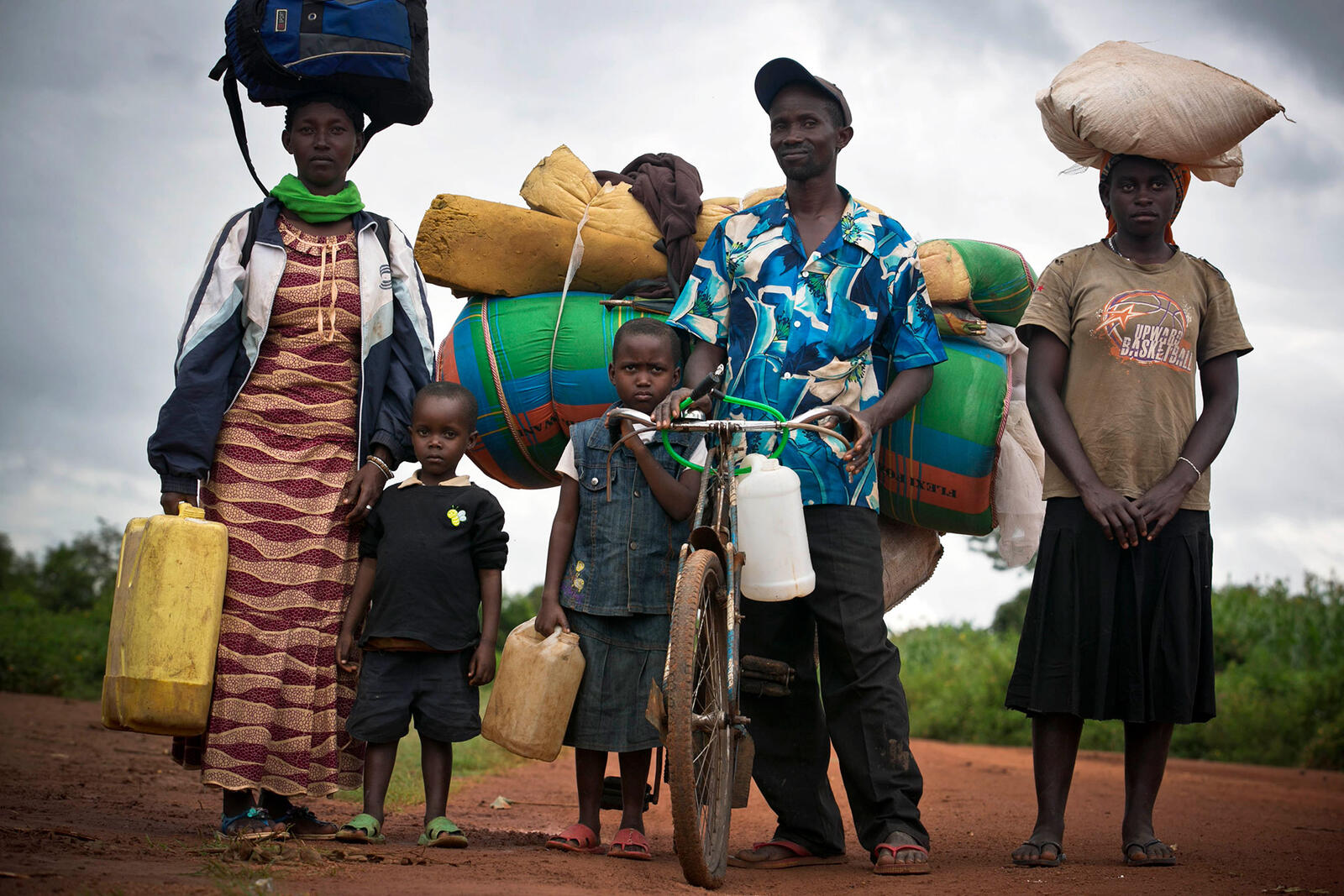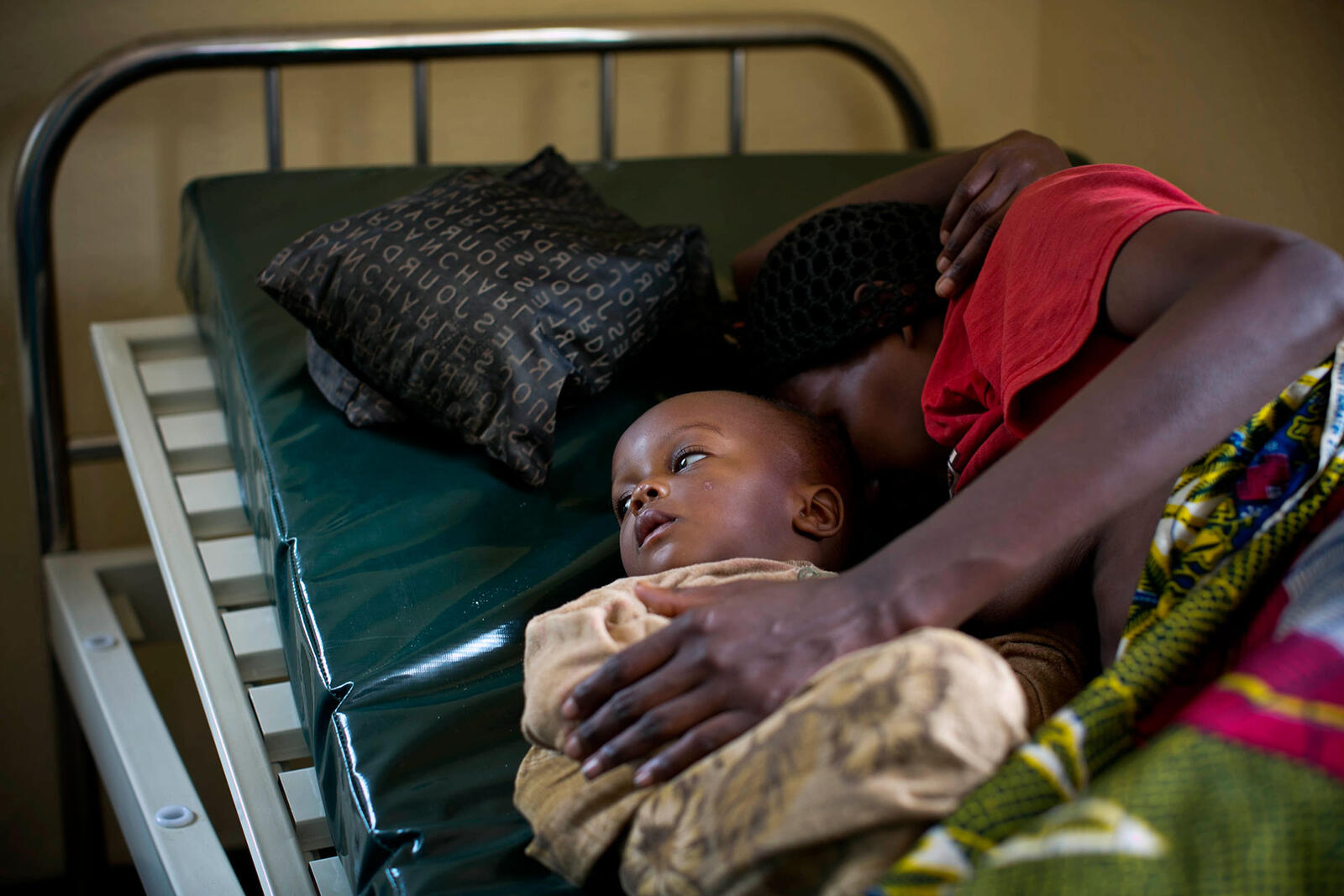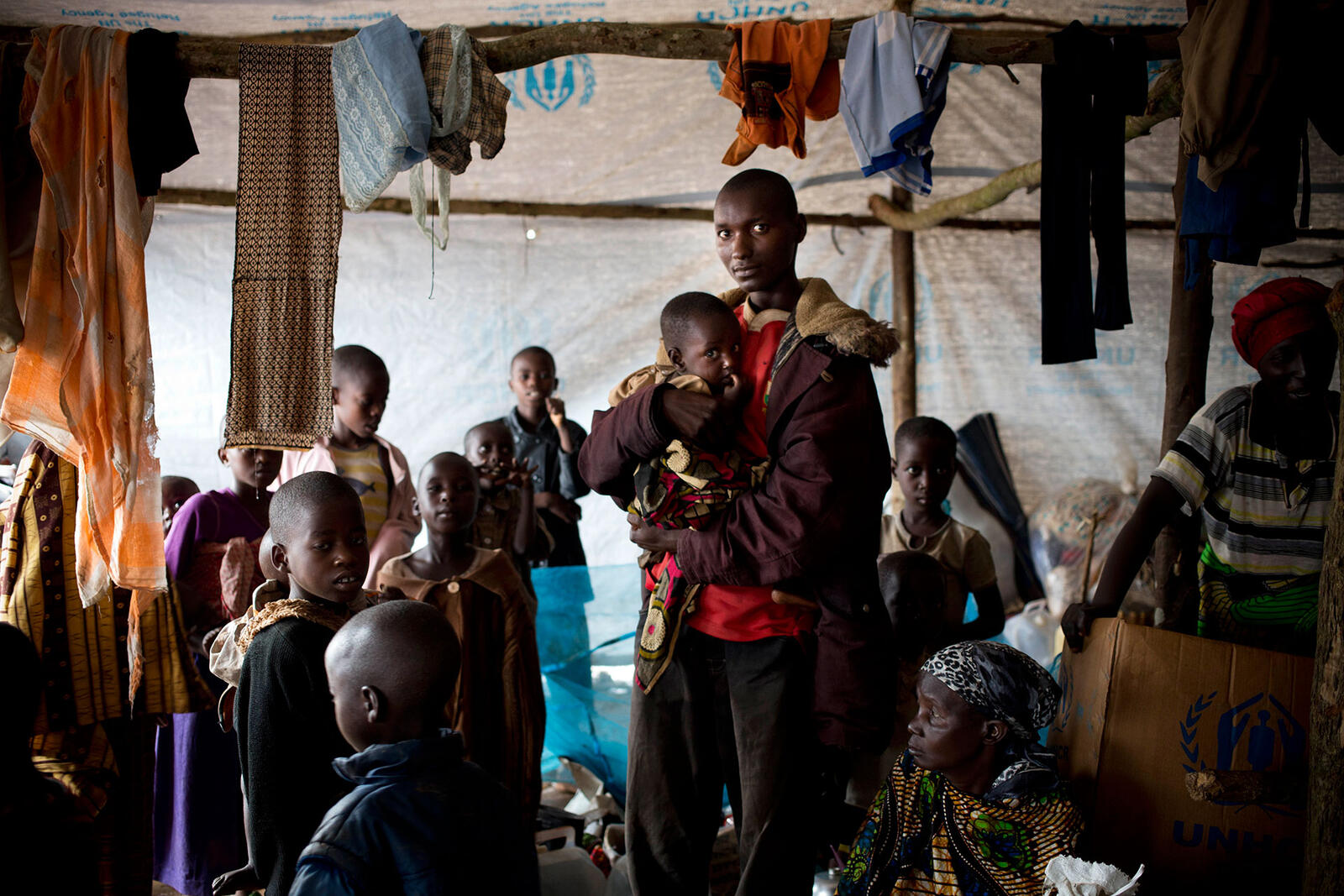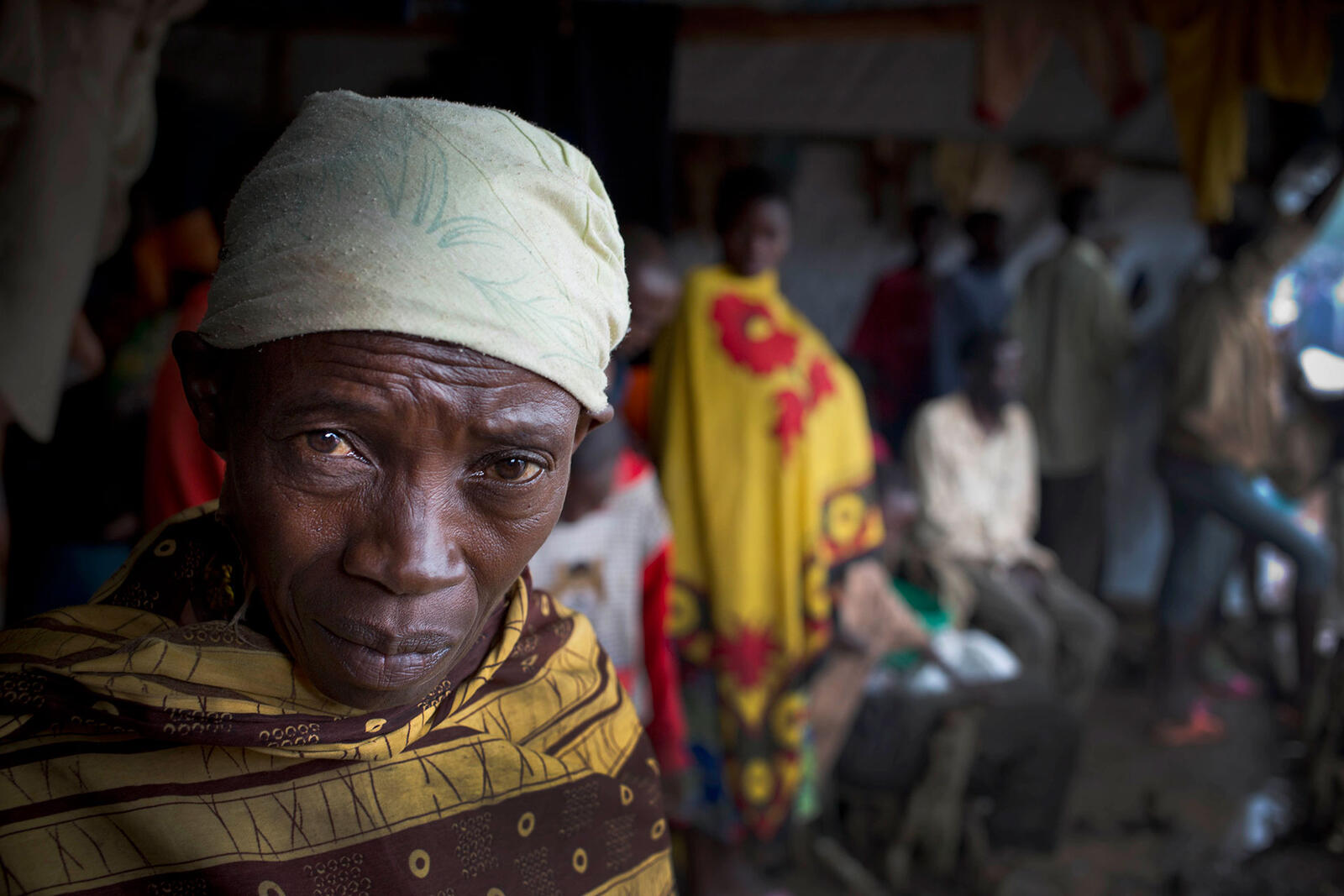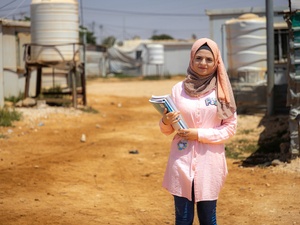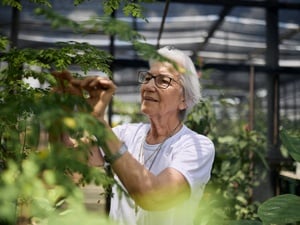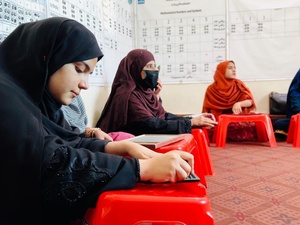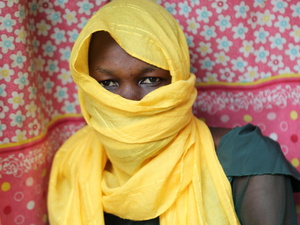Three mothers lead a daring escape from Burundi
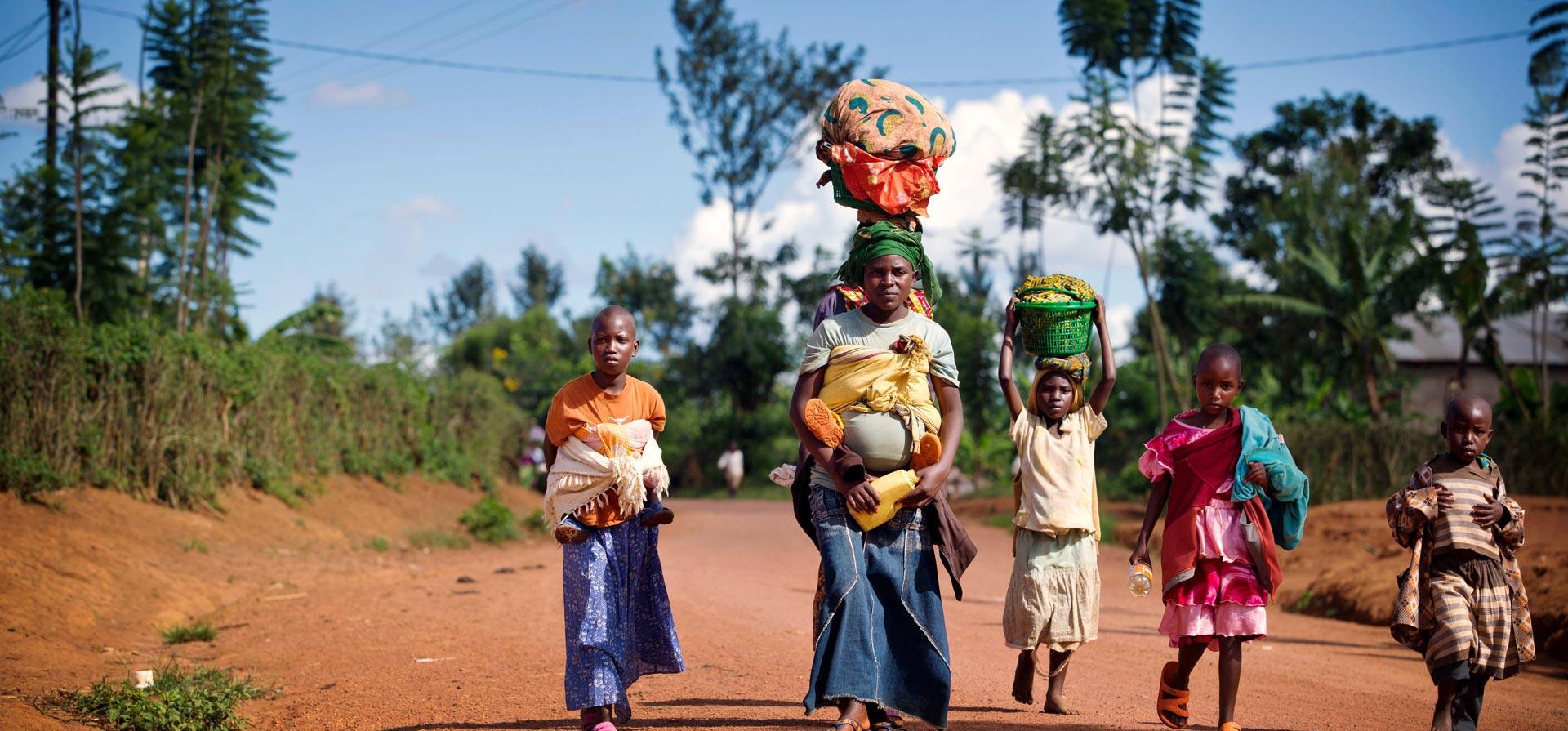
Three mothers lead a daring escape from Burundi
It is rainy season in Rwanda. Jeanne* and her four children are sheltering in a tent at Bugesera transit centre, not far from the border with Burundi. Despite difficult, crowded conditions, the family joke and smile freely. But, like the thousands of other Burundian refugees who have sought safety here recently, their faces cloud over when I ask them why they fled their home.
"I fled because there is a conflict between the ruling party and the opposition party," says Jeanne, 34. "The ruling party wants the President to go for a third term. His term is over but he still wants to be a President. I think this will be a war, and that's why I fled."
Jeanne and her children are among some 25,000 people who have fled pre-election violence in Burundi and arrived in Rwanda in the last several weeks.
"The Imbonerakure would come and paint our houses," she says, describing threats by the youth wing of the ruling party. "They painted mine. They painted red on my house at night, and when we opened the door the next morning we saw that the house was painted. I don't remember the exact date, but I think it was in March, perhaps the 23rd."
Back in Bujumbura, Jeanne and two of her neighbours, Félicité and Brigitte, had good jobs. Félicité was attending medical school and working at the hospital, while Brigitte had a small stall at the market and Jeanne ran a restaurant. But as the political climate worsened, they began to fear for their lives. A month later, together with their 10 children, they fled.
"We knew that on Saturday the President would say if he would run again," recalls Brigitte, 36. "The Imbonerakure had said that they would rape us if we would not support the party. This is not something that I just say. They had put it in practice and we saw it. They would come and kill people, maybe in the evening. They came to kill my brother, but he was at university. They did not find him."
One morning at 6 a.m., the three women and their children began their journey to Rwanda. They left Bujumbura by bus, but encountered many problems along the way.
"When the Imbonerakure saw us they wanted to beat us," says 24-year-old Félicité. "We bribed them with money. In total, we gave them 50,000 Burundian Francs [about US $31]. Every time we left a place, we were hearing that in that place they were searching for us. We were very scared. The leader of Kirundo Province had given an order that morning that no one should cross the Province."
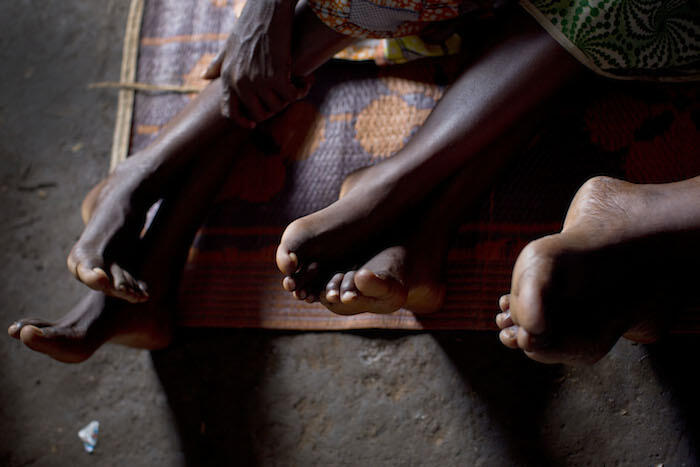
Jeanne, Brigitte and Félicité are among 25,000 Burundian refugees who have fled pre-election violence in Burundi and arrived in Rwanda.
The journey was also traumatic for the three women's children.
Charles, Jeanne's 12-year-old son, is the eldest of them all. "When I got back from school on Wednesday, my mum told me that we would leave to go to Rwanda," he recalls sadly. "The next day, I was going to take the national exam" at school.
Even now, the memory of their journey to Burundi is fresh in Charles' mind.
"We were in the bus and it was very cold," he says. "I covered myself and I went to sleep. I dreamt that there was a war, that people were killing each other and that there were gunshots. When we reached Kirundo, we stayed there for an hour. We boarded a mini-bus, but we were stopped by the police. They asked for our ID's [identity cards]. My mum gave them hers. The other women also did. They also asked for money. It was a lot, but we gave the money. There was a young man who saved us. If it was not for him, we would have been killed. He talked to the police and they let us go. He was a man from Kirundo. That young man talked to the police for a long time and gave them money. He then took us to his home for an hour."
"I dreamt that there was a war, that people were killing each other and that there were gunshots."
But the women and children still had to find a way to reach Rwanda.
"We asked the man to bring us bicycles," continues young Charles. "So we rode bicycles, but on the way we were stopped again. We gave them money but they refused it. Then they told my mother to get off her bike, or they would cut us. My mum got off the bike and she ran. The road was full of stones and she cut herself. I was very scared that she would not arrive, but they let us go and we continued the journey. I met my mother on the other side of the border."
Upon reaching the transit centre at Bugesera, where UNHCR is coordinating the emergency response, the three families were given shelter, sleeping mats, blankets, mosquito nets, jerrycans and drinking water.
Finally, they are safe. But happiness still feels far away.
Jeanne left a husband and two other children behind in Bujumbura, and has had no news of them since. "Two of my children stayed with their dad," she explains. "They wanted to come with their mother, but I did not have enough money to take them with me."
"The kids keep asking where is their dad, and I don't reply to the question. I don't know if he is still alive."
Brigitte also left her husband and brother behind in Bujumbura, and worries because she hasn't heard anything. "I last talked to my husband on 26 April, and I last talked to my brother when I still was in Burundi," she says. "It hurts me because I haven't heard from him. We were orphans. He was like our father and now I don't know if he is still alive. I am deeply hurt. The kids keep asking where is their dad, and I don't reply to the question. I don't know if he is still alive."
Their stay at Bugesera transit centre will be a short one. Tomorrow, Brigitte, Félicité, Jeanne and their children will move to the new Mahama refugee camp, further away from the border. They are glad to have found a safe place, but sad to leave the centre without their husbands and rest of their families.
"We feel bad because we are going far away from our people," says Brigitte. "We don't know if we will see them again."
* The names in this story have been changed for protection reasons.


